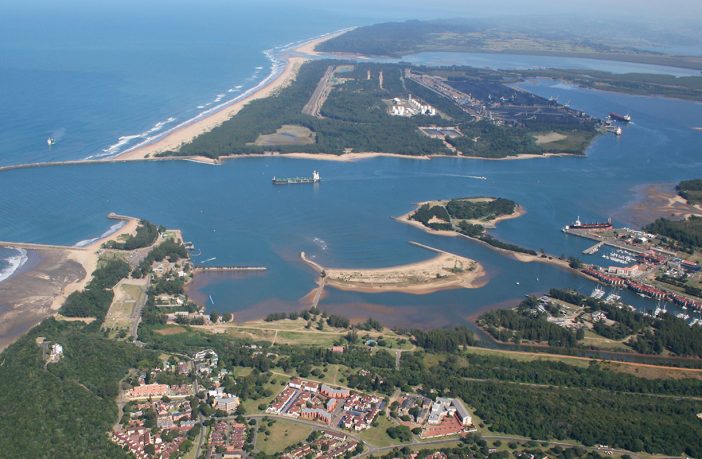- Judge Anthony Millar in the North Gauteng High Court has dismissed a landmark application brought by two environmental justice NGOs – the South Durban Community Environmental Alliance and Groundwork – to review and set aside the Department of Environmental Affairs (DMRE)’ decision to grant Eskom’s proposed 3000MW gas power plant an environmental authorisation.
- The judgment found six out of seven grounds for review of the decision were without merit and could not succeed but did rule that the public participation process was deficient.
The Department of Forestry, Fisheries and the Environment, and for Eskom, presented their arguments, focusing on the policies of government, arguing that deference should be given to the decisions made by government, and that the public participation process met the minimum requirements of the EIA Regulations.
Link to Eskom’s 3000MW combine cycle gas power plant and associated infrastructure project scoping report HERE
The fight continues
According to a broad coalition of environmental and climate justice groups, government’s current plans to procure an additional 3000 megawatts of new gas power are vague, unnecessary and threaten the Constitutional rights of people living in South Africa.
Environmental and climate justice groups groundWork, the South Durban Community Environmental Alliance (SDCEA), Natural Justice and the Centre for Environmental Rights (CER), submitted objections to the National Energy Regulator of South Africa (NERSA) on plans proposed by the Minister of Mineral Resources and Energy on 25 August 2022 for Eskom to procure 3000 megawatts (MW) of gas power in Richards Bay.
This is over and above the 3000 MW of gas capacity provided for in South Africa’s electricity planning document – the Integrated Resource Plan for Electricity (IRP) of 2019, for which a Ministerial determination was issued in 2020, though procurement has not yet commenced.
The groups argue that the proposed determination is fundamentally unreasonable and irrational and procedurally inadequate. “As far as we know, this proposed gas capacity is not based on any energy modelling or informed by any impact assessments”, says Desmond D’Sa of SDCEA. In the wake of a new bout of load-shedding and South Africa’s worst load shedding year so far, the groups highlight that gas is not the solution to the electricity crisis. Read more
Author: Bryan Groenendaal
















13 Comments
I may not understand what is said above due to the lack of my knowledge or education and understanding. But this if it going to lift this country’s economy and people lifes it must go ahead.
For a short period yes it will, but in the long run it may destroy the ecosystem around the area, meaning no more tourism and many other bad effects. This is the problem with people and especially government these days, rushing to fix things they left for so long, should not destroy other parts of our economy. Half witted ideas and badly drawn up plans without proper research will cause our kids and their kids more and more stress and will destroy the country even more.
We have a struggling power supply issue . This can only improve our economy why even argue about it.
Those ships are not coming to our harbours for free. For the cost of having them here South Africa can build their own “Karpowerships”. As one reader already mentioned, we do not have gas. Gas is imported and it will cost more in the long run together with the damage
It should go ahead if and when the project is approved. The gas would presumably be sourced from the Pemba Gas Field off the Mozambique coast. It would also be beneficial for RBM etc.
It will not give people jobs it will cost our country money and kill the environment it will not work Richards bay is one of the ports that transport things out.
South Africa has no gas. This is another thing that the country will have to import at increased cost to the taxpayer.
All you have to do is to strategically place solar farms, wind farms, hydroelectric power plants and tidal generators. We have more than enough ways of producing power, we just need government to stop stealing money and for someone with a brain to implement it.
You paying 5 times more for diesel. But cos big peteochem must gain at that cost to environment, we are focused on the scraps.
It is the better option than diesel
Yes it is.
Your solutions are driven by media and they are not tenable to replace the current power demand. Do your research you’ll discover that by yourself.
Mozambique is running and operating a gas power plant, in fact it is operated by sasol. South Africa should have long back imported gas from Mozambique and operate a gas power plant here in South africa to provide power. Gas is cleaner than coal. Electricity in Mozambique is very cheap,
Hi Thom, thanks for your comments. Sasol does import gas from mozambique via a 865km pipeline that runs from the Temane and Pande fields in Mozambique to a distribution network in Secunda, South Africa. More recently they have sold off equity in the pipeline as the gas is set to run dry in 2024. They are now obviously looking for alternative sources.
Pingback: Court rules that Eskoms 3000MW gas-power plant in Richards Bay can go ahead – Centre for Environmental Rights